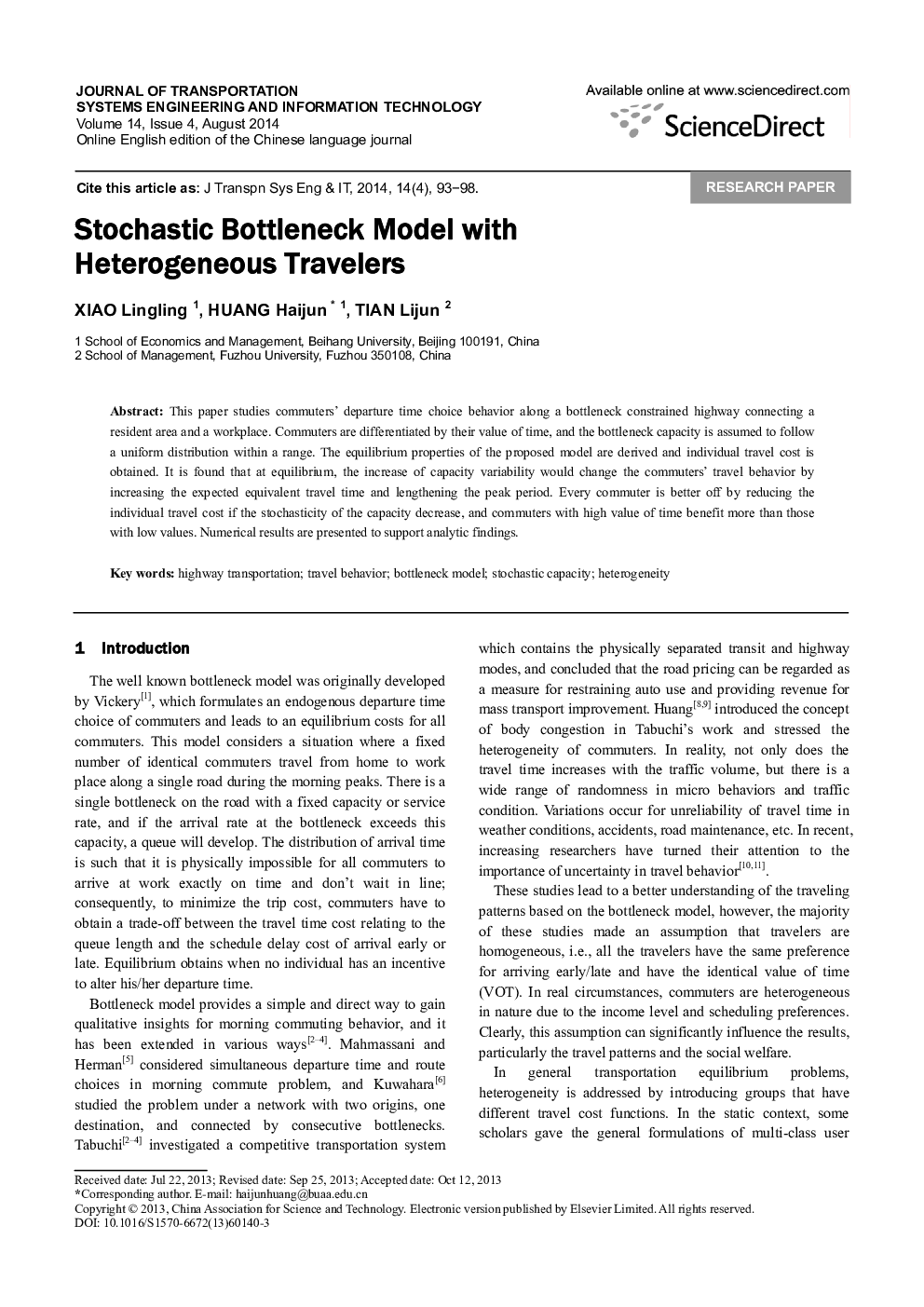| Article ID | Journal | Published Year | Pages | File Type |
|---|---|---|---|---|
| 108420 | Journal of Transportation Systems Engineering and Information Technology | 2014 | 6 Pages |
This paper studies commuters' departure time choice behavior along a bottleneck constrained highway connecting a resident area and a workplace. Commuters are differentiated by their value of time, and the bottleneck capacity is assumed to follow a uniform distribution within a range. The equilibrium properties of the proposed model are derived and individual travel cost is obtained. It is found that at equilibrium, the increase of capacity variability would change the commuters' travel behavior by increasing the expected equivalent travel time and lengthening the peak period. Every commuter is better off by reducing the individual travel cost if the stochasticity of the capacity decrease, and commuters with high value of time benefit more than those with low values. Numerical results are presented to support analytic findings.
摘要研究早高峰期内通勤者由生活区开车通过高速公路到达工作区的交通行为.假设出行者是异质的,其时间价值(VOT)按照递增的顺序排列,并假设高速公路上瓶颈的通行能力在某一区间内随机变化,基于经典瓶颈模型对出行者的均衡出发时间选择行为进行解析求解,给出了模型的均衡性质和个人出行总成本.结果显示,随着瓶颈通行能力随机性的增大,出行者的期望等价出行时间和高峰期长度增加.当瓶颈通行能力的随机性降低时,个体均衡出行成本下降,时间价值越大的出行者,其成本降低的收益越大.算例结果验证了理论分析结论.
